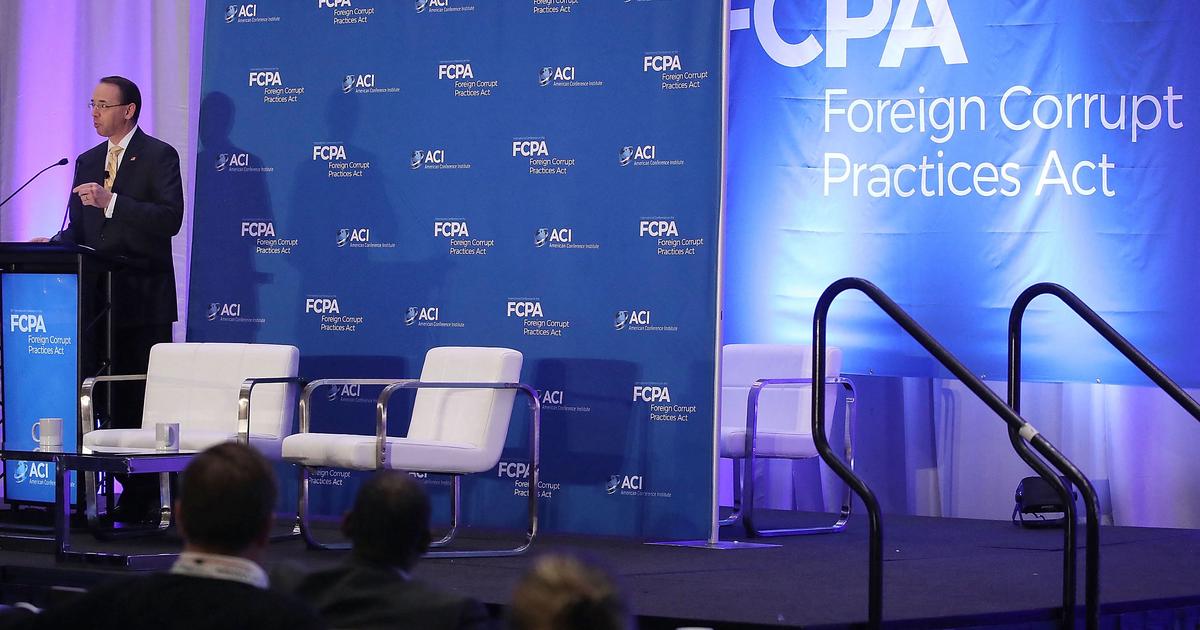Anti-corruption activists around the world have high hopes from a new US law that for the first time allows the United States to prosecute foreign officials who accept bribes.
This text expands the scope of the Foreign Corrupt Practices Act of 1977 (FCPA), intended to sanction companies paying bribes and their agents.
The Foreign Extortion Prevention Act (FEPA), signed into law in December by President Joe Biden as part of the National Security regulation, now targets the receiving side: foreign government officials who request and accept such payments.
Auwal Musa Rafsanjani, a human rights and anti-corruption activist in Nigeria, hopes that this text will instill
“a certain degree of concern”
among leaders who until now believed they enjoyed
“impunity”
.
Scott Greytak, advocacy director of the NGO Transparency International in the United States, expects FEPA to reduce corruption.
“Every employee of every foreign government is warned that the weight of the United States government may fall on him
,” he notes.
According to him,
“this will change behavior”
.
But Mike Koehler, a professor at the Southern Illinois University School of Law, considers the new measure only
"symbolic"
, instead encouraging other countries to implement their own anti-corruption laws.
A law dating from the Cold War
The FCPA emerged in the context of investigations linked to the Watergate scandal, after revelations of payments made to foreign officials by large American companies, such as the defense groups Lockheed Martin and oil company Mobil Oil.
While this Cold War law prohibits American companies from making such payments, it does prevent the prosecution of representatives of foreign governments out of fear for the diplomatic interests of the United States.
The Justice Department has nevertheless managed to bring indictments through other measures over the years, such as money laundering.
Among the largest cases under the FCPA was a $2.9 billion sanction in October 2020 against Goldman Sachs over the payment of bribes to officials from Malaysia and the emirate of Abu Dhabi.
In particular a bond issue of 6.5 billion dollars for the Malaysian sovereign wealth fund 1MDB.
Nigerian activist Auwal Musa Rafsanjani cites a case launched by the US Department of Justice and its counterparts, particularly in France and Italy, against a consortium of four companies that won $6 billion in contracts to build liquefied natural gas infrastructure at Bonny Island, Nigeria.
But no Nigerian official has been imprisoned, according to him.
Reluctance to extradite
The annual Corruption Perceptions Index, released Tuesday by Transparency International, shows that two-thirds of countries are below 50 due, among other ills, to underpaid law enforcement.
Nigeria gets 25, when the best score is 100. Still, foreign policy considerations could still hamper prosecutions, despite the advent of FEPA, legal experts note, also highlighting the likely reluctance of governments to extradite their accused officials. in question.
Supporters of the law see it as a way to make the fight against corruption a priority.
In particular, it provides for the publication by the Ministry of Justice of an annual report on the extent of the phenomenon and an assessment of its prosecutions.
FEPA places the fight against corruption
“at the forefront”
, notes Patrick Stokes, who was on the side of the prosecution during the prosecutions in the Bonny Island affair.
“In practice, the new text only marginally extends the tools of the DoJ (Ministry of Justice) to track corruption
,” he believes.
But it
“can have a real deterrent effect by clearly establishing that foreign officials can be prosecuted for asking for or accepting bribes
,” adds Mr. Stokes.
For Jason Linder, a former federal prosecutor, the demand for bribes remains
"robust because corruption is endemic in some countries"
and the laws of developed countries only apply to
"a very small percentage"
of these activities.
FEPA represents a
“very constructive step”
but
“it remains to be seen how the DoJ will apply it
,” he insists.
And the extent of its success will have to be measured
“in the coming decades”
.

